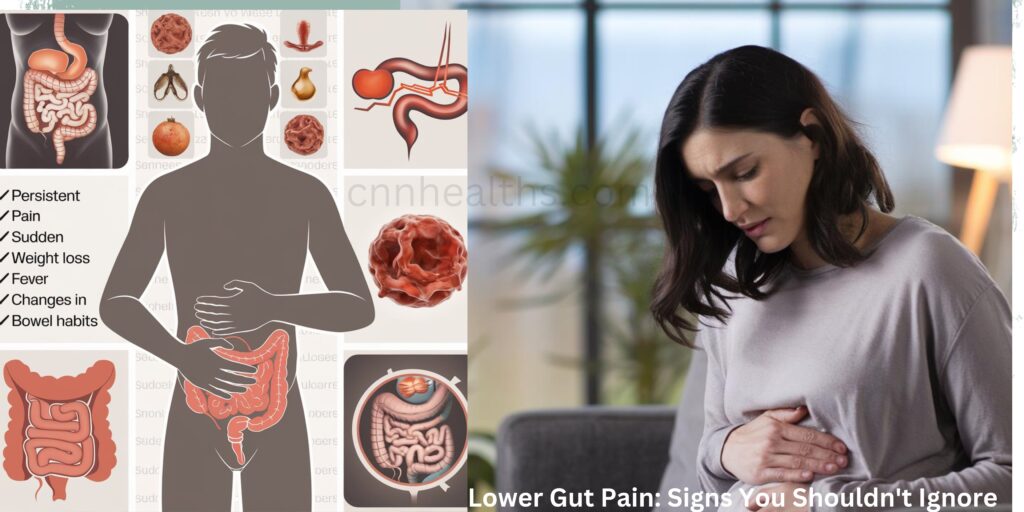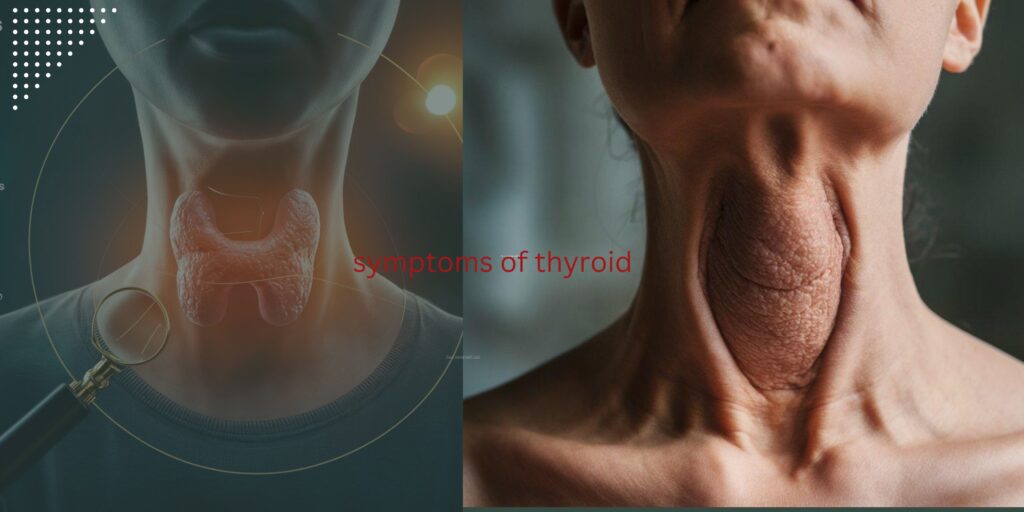Intro
This article is all about “Lower Gut Pain: Signs You Shouldn’t Ignore.” Lower Gut Pain is a common complaint that many individuals experience at some point in their lives. While occasional lower gut pain may be due to something as simple as gas or indigestion, persistent or severe lower gut pain could be a sign of a more serious underlying condition. In this blog post, we will explore the signs and symptoms of lower gut pain that you shouldn’t ignore, common causes, when to seek medical help, diagnostic tests, dietary changes, lifestyle modifications, over-the-counter remedies, natural remedies, and the importance of regular medical check-ups for better gut health.

Common Causes of Lower Gut Pain
This article is all about “Lower Gut Pain: Signs You Shouldn’t Ignore” .Navigating the maze of what might be causing your lower gut pain can feel a bit like detective work. This discomfort in your lower abdomen can stem from a diverse array of issues, ranging from the relatively benign to those requiring immediate medical attention. At the heart of many cases of lower gut pain are gastrointestinal troubles such as irritable bowel syndrome (IBS), a condition marked by chronic discomfort, and inflammatory bowel disease (IBD), which includes Crohn’s disease and ulcerative colitis, characterized by ongoing inflammation of the digestive tract. Gastroenteritis, often referred to as the stomach flu, can also lead to acute lower gut pain due to its infectious nature.
But the story doesn’t end with the gastrointestinal system. The plot thickens when considering other culprits like constipation, a common but often overlooked cause, and food intolerances, where the body reacts negatively to specific foods like dairy or gluten. Beyond the digestive tract, urinary tract infections and kidney stones pack a painful punch to the lower gut, mimicking gut-related issues. For women, menstrual cramps or conditions like pelvic inflammatory disease can also masquerade as lower gut pain, adding layers of complexity to the diagnosis.
Understanding the diverse cast of characters behind lower gut pain illuminates the importance of pinpointing the precise cause. Without identifying the true villain in this story, effective treatment remains just out of reach, underscoring the need to consult healthcare professionals who can help unravel the mystery of your discomfort.
When to Seek Medical Help for Lower Gut Pain
Navigating the journey of lower gut pain can be somewhat of a tightrope walk, balancing between what’s normal and when it’s time to raise the alarm. It’s vital to listen closely to your body’s whispers before they turn into screams for help. Recognizing the red flags is crucial for timely intervention and preventing potential health complications down the road. So, what are these signals that shout, “It’s time to see a doctor”?
If your lower gut pain has become a persistent guest, refusing to leave after several days, it’s time to pick up the phone and make that appointment. Sudden, severe pain that takes your breath away or significantly disrupts your daily activities is a loud and clear sign that professional evaluation is needed without delay. The plot thickens if this discomfort is accompanied by a fever, suggesting an underlying infection or inflammation that needs immediate attention.
Let’s not forget about other co-stars in this scenario. Symptoms such as vomiting, especially if it’s persistent or you notice blood, bloody or significantly altered stools, unexplained weight loss, or difficulty breathing alongside your lower gut pain, are all indicators that your body is sending an SOS. These symptoms could point towards conditions that require more than just home remedies and a good rest.
The key here is not to wait until your symptoms become unbearable or to brush them off as something minor that will pass on its own. Early intervention can make a significant difference in your treatment journey and overall health outcome. So, if your gut (pun intended) is telling you that something’s not right, it’s time to listen and seek the advice of a healthcare professional.
Diagnostic Tests for Lower Gut Pain
Embarking on a journey to uncover the mysteries behind your lower gut pain, your healthcare provider might transform into a bit of a detective, suggesting various diagnostic tests to get to the bottom of your discomfort. These aren’t your everyday tests; think of them as a personalized investigation into what’s happening inside your body.
First on the list could be blood tests, offering clues about infections, inflammation, or other markers that something’s not quite right. Then there are stool tests, which can reveal a lot about your gut health, including infections, presence of blood, or indicators of digestive disorders.
Imaging studies, such as ultrasounds or CT scans, provide a visual insight into your inner workings, highlighting anything unusual that could be contributing to your pain. These high-tech scans are like the x-ray vision of the medical world, allowing doctors to see beyond the surface and identify any structural problems or diseases.
For a closer look, endoscopy or colonoscopy might be on the cards. These procedures involve sending a tiny camera on a voyage through your digestive system, offering a live feed of the situation inside, revealing inflammation, blockages, or other abnormalities that could be causing your pain.
Each of these tests serves as a crucial piece of the puzzle, guiding your healthcare provider toward the most effective treatment plan tailored just for you. Remember, these diagnostic tools are your allies in the quest for relief and better gut health, shining a light on the path to feeling your best.
Dietary Changes to Alleviate Lower Gut Pain
Embarking on the path to soothe your lower gut pain, adjusting your plate could be a delightful adventure in discovering what nourishes and what aggravates your digestive system. Imagine your diet as a personalized map, guiding you away from the territories of discomfort and toward a landscape of well-being. Starting with the simple step of sidestepping trigger foods, such as those that are overly spicy, laden with fats, or packed with artificial ingredients, can dramatically alter the course of your journey.
transforming your meals into small, frequent treasures throughout the day, rather than overwhelming feasts that tax your system. This shift not only eases the burden on your gut but also ensures a constant, gentle supply of energy, keeping you fueled without the flare-ups of pain. Diving deeper into the realm of dietary fibers, think of these as the allies that keep your digestive tract in a smooth flow, preventing the perils of constipation and the discomfort it brings Hydration, the silent guardian of your gut, plays a pivotal role in this adventure. Envision each sip of water as a soothing elixir, calming the fires of irritation and aiding in the seamless passage of your daily fare through the twists and turns of your digestive tract.
Embarking on this culinary quest armed with a food diary, you become a savvy navigator, charting the effects of various foods on your body, identifying foes, and fostering a battalion of beneficial eats. This proactive approach empowers you to craft a diet that’s as unique as your gut, turning the tide against lower gut pain and setting sail towards a horizon of health and harmony.
Lifestyle Modifications for Better Gut Health
Embarking on a journey toward superior gut health encompasses more than just mindful eating; it requires a holistic approach to how we live our day-to-day lives. Imagine transforming your routine into a powerful ally against lower gut pain. Engaging in regular physical activity is akin to sending your digestive system a love letter. Whether it’s a brisk walk in the park, a refreshing swim, or a calming yoga session, moving your body stimulates digestion and keeps the cogs of your gut machinery well-oiled.
Stress, the silent saboteur of gut health, demands our attention. In this fast-paced world, carving out moments for meditation, deep-breathing exercises, or simply indulging in your favorite hobby acts as a buffer against the storm, soothing your nervous system and, by extension, your gut.
The embrace of Morpheus, or getting sufficient sleep, cannot be overlooked. Each night’s rest is a reset for your digestive system, allowing it to repair and rejuvenate. Picture your gut as a nocturnal garden, with sleep being the gentle rain that nurtures it.
Lastly, consider your social habits—searing and indulgence in heavy drinking can wreak havoc on your gut, disrupting its delicate balance. Moderation or avoidance of these can fortify your gut’s defenses, making it more resilient against pain and discomfort.
By weaving these lifestyle modifications into the fabric of your daily life, you lay down the stepping stones toward not just better gut health, but a more vibrant, energetic you.
Over-the-Counter Remedies and Medications
Embarking on a quest for relief from lower gut pain, the aisles of your local pharmacy are laden with potential allies. Over-the-counter remedies, including antacids for that burning sensation, laxatives for the woes of constipation, and anti-diarrheal medications for those urgent and unwelcome trips to the bathroom, stand ready to offer reprieve. These accessible aids can be a first line of defense, taming the tumultuous tides of discomfort that lower gut pain can bring.
However, it’s akin to navigating a sea with hidden depths. Just as a captain consults a map before setting sail, consulting with a healthcare professional ensures that you’re charting a safe course. This is because, while these medications are readily available, they are not free of considerations. For instance, antacids might interact with other medications you’re taking, laxatives used too liberally can lead to dependency, and anti-diarrheal medications might mask symptoms of a more serious condition.
Your healthcare provider serves as your compass in these waters, guiding you to the remedies that best suit your symptoms and personal health landscape. They can pinpoint which over-the-counter options will offer you relief without leading you astray. Through this partnership, you’re not just addressing the symptoms; you’re navigating towards a solution that harmonizes with your overall health journey.
Natural Remedies and Alternative Therapies
Embarking on the path of natural remedies and alternative therapies opens up a treasure trove of options that could soothe your lower gut pain with the gentle touch of Mother Nature. Picture this: probiotics as your gut’s loyal allies, fortifying your digestive system’s flora, paving the way for a harmonious digestive process. Peppermint oil stands as a cool breeze, offering relief from cramping with its smooth, muscle-relaxing properties. Envision ginger and turmeric as the dynamic duo, their anti-inflammatory powers working in tandem to quell discomfort and promote healing from within.
Diving deeper into the realm of holistic healing, acupuncture emerges as a beacon of relief. This ancient practice, with its fine needles, might seem like a map of constellations, but each point targeted is a step toward alleviating your discomfort, encouraging the body to heal itself.
It’s a journey where each remedy or therapy is a stepping stone, not just to relief, but to a deeper understanding of your body’s needs and rhythms. While these natural avenues offer a promising path, they’re most effective when navigated with the guidance of a healthcare professional, ensuring that each step taken is in harmony with your overall health landscape.
Importance of Regular Medical Check-Ups
Embracing the routine of regular medical check-ups is like setting sail on a voyage toward safeguarding your gut health. These scheduled visits to your healthcare provider act as lighthouses, guiding you through the fog of uncertainty and ensuring you navigate safely around potential health hazards. By discussing any new or lingering symptoms with your doctor, you create an open dialogue that allows for the timely detection of any changes that may warrant closer examination. It’s not just about catching issues early; it’s about creating a partnership with your healthcare professional, where together, you chart a course towards maintaining or improving your gut health. Think of these check-ups as checkpoints on your health journey, opportunities to adjust your sails, and ensure you’re headed in the direction of optimal wellness. With each visit, you’re investing in a future where your gut health is not left to chance but is carefully monitored and managed, ensuring you stay ahead of the waves and enjoy smoother sailing ahead.

